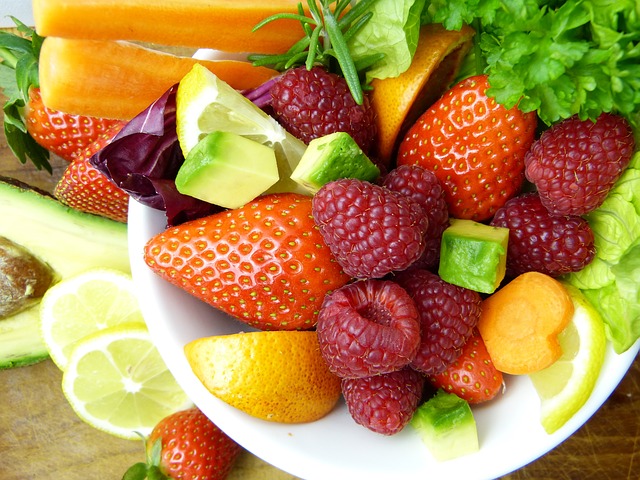15 Cost-Saving Grocery Tips
Want 15 Cost-Saving Grocery Tips?
Here's a guest post which gives you just that - 15 Cost-Saving Grocery Tips for helping you afford whole foods on your budget.
With that in mind, here are 15 tips that are the best of the best to get high-quality food on a limited budget:
- Choose local foods over organic foods. Often, locally grown foods are raised according to organic standards at a more affordable price.
- If all that's available or affordable is fresh, conventionally grown produce, buy it, wash it well at home, and eat it.
- Look for local farms, farmer's markets and food coops offering raw dairy products, eggs, produce, and grass-fed meat. This will allow you to cut out the middleman and save money. Buying in large quantities, such as a side of grass-fed beef, can also save you money in the long run as long as you have room to freeze it (and you consume it before it goes bad).
- Skip ready-made meals and prepared or pre-cut foods, which can cost up to double the amount as the unprepared versions.
- Plan your meals ahead of time (including cooking large batches and freezing some for later) so you don't splurge on expensive, unhealthy fast-food at the last minute.
- Pass on processed junk foods like potato chips, soda, cookies, candy, and other snacks. These are a complete waste of money, even if they're "organic."
- Buy plenty of fresh veggies, they're usually less expensive than canned versions (just make sure you use them before they go bad).
- Only buy what you need. Keep track of what's in your pantry so you don't double-up on foods unnecessarily.
- Clip coupons and use them when you can (but don't buy something unhealthy just because it's on sale).
- Watch the register when you check out of the grocery store. They often ring up wrong prices, at your expense.
- Shop with a calculator so you can determine if it's really a better deal to buy something in bulk or in a larger size.
- Watch weekly specials, and be aware of what's really a good price. You can often find organic produce on sale for less than conventional produce if you know what prices to watch for.
- If you have the space, consider starting your own vegetable garden. When factoring in start-up and maintenance costs, a well-maintained food garden yields a $500 average return each year compared to the market price of produce, according to the National Gardening Association (NGA). So there is a definite financial incentive there.
- Remember this rule of thumb: Fresh food is always better than frozen, but frozen is better than canned.
- Make the most of your food purchases by focusing on those that are right for your nutritional type. The nutritional typing assessment is now absolutely free, and will give you an idea of which foods you should eat for optimal health and nutrition.
Cooking up those healthy veggies
I hope the above tips will help you in your quest to eat healthy on a budget. Now that you've got your grocery haul home, what do you do with them? I'm not that great at prepping weekly meals all in one go, however there are a lot of social media accounts out there that share easy and inexpensive recipes for delicious foods that are sure to please you and your family.
By doing a search for the foods you like to eat, or even a specific recipe, you can find numerous influencers sharing quick and easy recipes based on your diet and preferences. Looking for cheap and easy vegan meals? Type that in your search. Or maybe easy slow cooker plant-based meals might be more your thing. Another simple meal I've been making lately is where everything is placed on a sheet pan and cooked in the oven.
We love getting root veggies from the local farmer's market, cutting them up, putting them on a large cookie sheet, and roasting them all together. I then cook a big pot of rice and we have a meal - simple!
If you are into prepping - it really is a great way to use all of your produce and it's so much easier to be able to pull out a container and have all the ingredients ready to go. If that's you, I applaud you. We'd love to hear about your prepping adventures if you're willing to share.

Anyway, if you have any other tips you'd like to add, I'll be adding a form below soon. Maybe you have a recipe or meal plan you'd like to share. Or tips to help meal prepping easier for those with challenges. Or do you have other tips to make buying organic foods on a budget that aren't included in the 15 tips above, feel free to add them below.
In the meantime, below you'll find a few external links that may also be of help. The links will open in a new window.
A Few More Cost Saving Grocery Tips
- Eco Living Mama - How to Eat Organic on a Budget.
- Weston Price - Eating Shouldn't Cost an Arm and a Leg.
- Thrive Market - A healthy online food store that now takes EBT.
Go from 15 Cost-Saving Grocery Tips back to How to Afford Whole Foods.
Privacy Policy ~ Advertising Policy ~ Disclaimer ~ Contact Us ~ About Us





New! Comments
Have your say about what you just read! Leave me a comment in the box below.